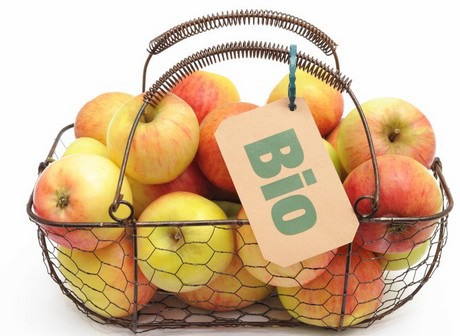The local organic apple is a true export hit and after a difficult first year has become a real success story. Neues Land raises the question: What will its future look like?

What began with a handful of farmers became a new standard of production in the Styrian apple country - organic orchards. Almost 20 percent of the apple acreage is currently farmed according to organic guidelines. The largest grower organization in the country, Obst Partner Steiermark (OPST), already has about 50 percent organic farmers. Fritz Prem is its chairman, President of the European Organic Fruit Forum - a platform for organic producer groups in Europe - and organic fruit growers in Kaindorf near Hartberg.
Differences
He is considered an industry expert and explains the difference between conventional and organic production: "In case of problems in his orchard, an old-school fruit grower asks himself what he can inject into it. The organic farmer first asks why the problems have cropped up and whether he did something wrong." This has meant that from the late 1980s to today, a real quantum leap in production has been achieved. Prem continues: "Initially there was a lack of knowledge and technology. Pests led to major crop failures. However, excellent sales prices made this positive development possible. Meanwhile, production is already very much on the right track." Sales of Styrian organic fruits continue to rise and many problems with which conventional colleagues are currently struggling do not seem to exist for the organic sector. Why is that?
"There are many reasons for this. Many consumers do not want pesticide residues on their fruit. It does not matter to them if they remain below all safe limits; as soon as there is an alternative on the market, they do not want any. Furthermore, we are better positioned in a marketing sense. While the four largest retail chains, which together sell more than 90 percent of the food in Austria, currently have more than 20 conventional suppliers, there are only 3 for the organic sector. "Despite national overproduction, this means that every second organic apple is exported, and we are seeing stable prices because of this. The expert also states that the European organic market is growing annually by about seven percent. In addition, there is currently no danger from large-scale producer Poland, because no noteworthy organic quantities are produced there.
Successful concept
Prem sees the future of the organic apple as very positive, if sales are continued to be conducted in the current, highly professional way, and if a few production principles are adhered to. "The most important thing right now is that companies integrate themselves into one of the three main Austrian sales structures. Working individually and thus fragmented will have a very negative effect on the market." The successful concepts discovered so far must also be consistently implemented and improved. "Varieties with attractive tastes are a must in the future. And too intensive production per hectare can be detrimental to the taste. Again, the optimum between quantity and quality should be strictly adhered to."
Source: www.neuesland.at
